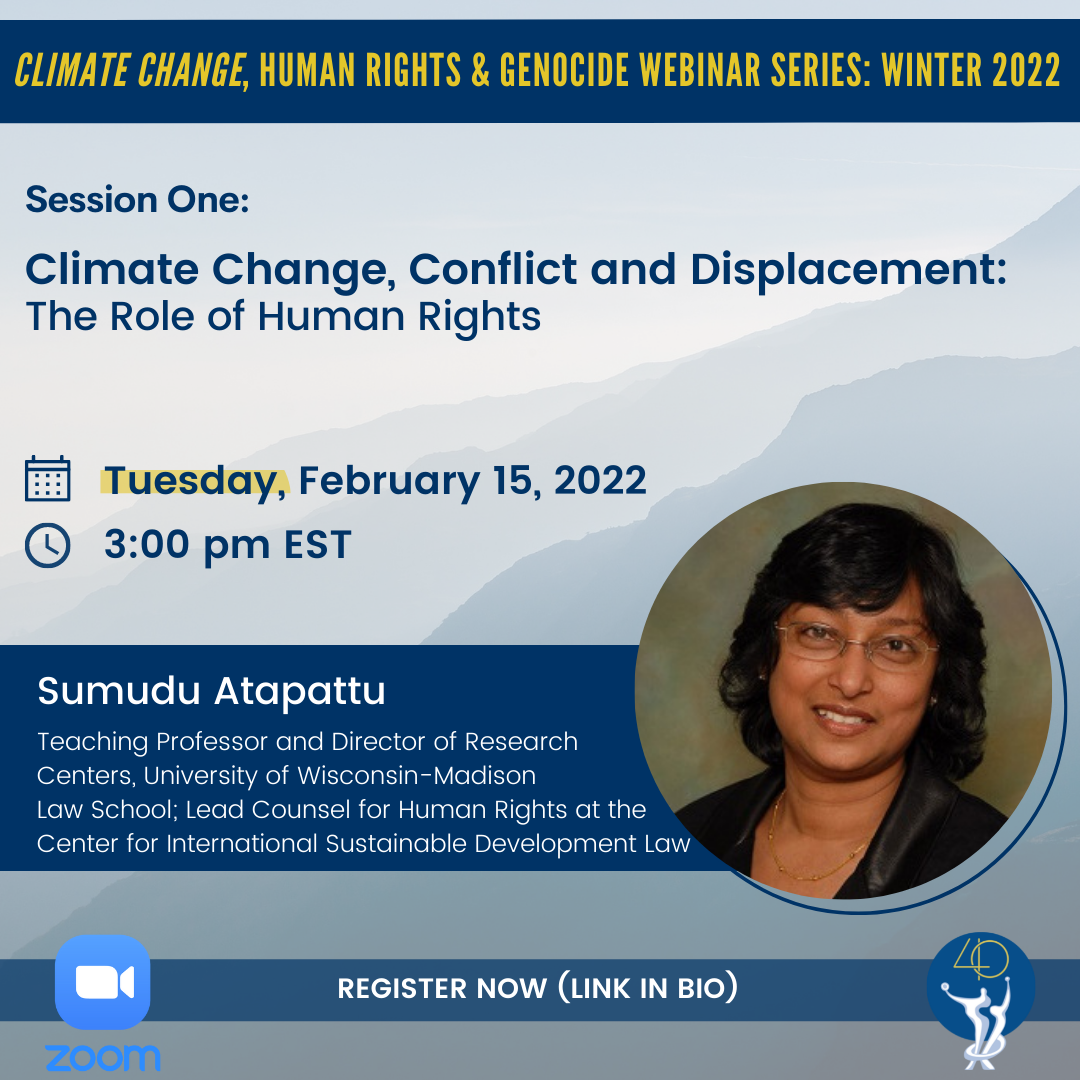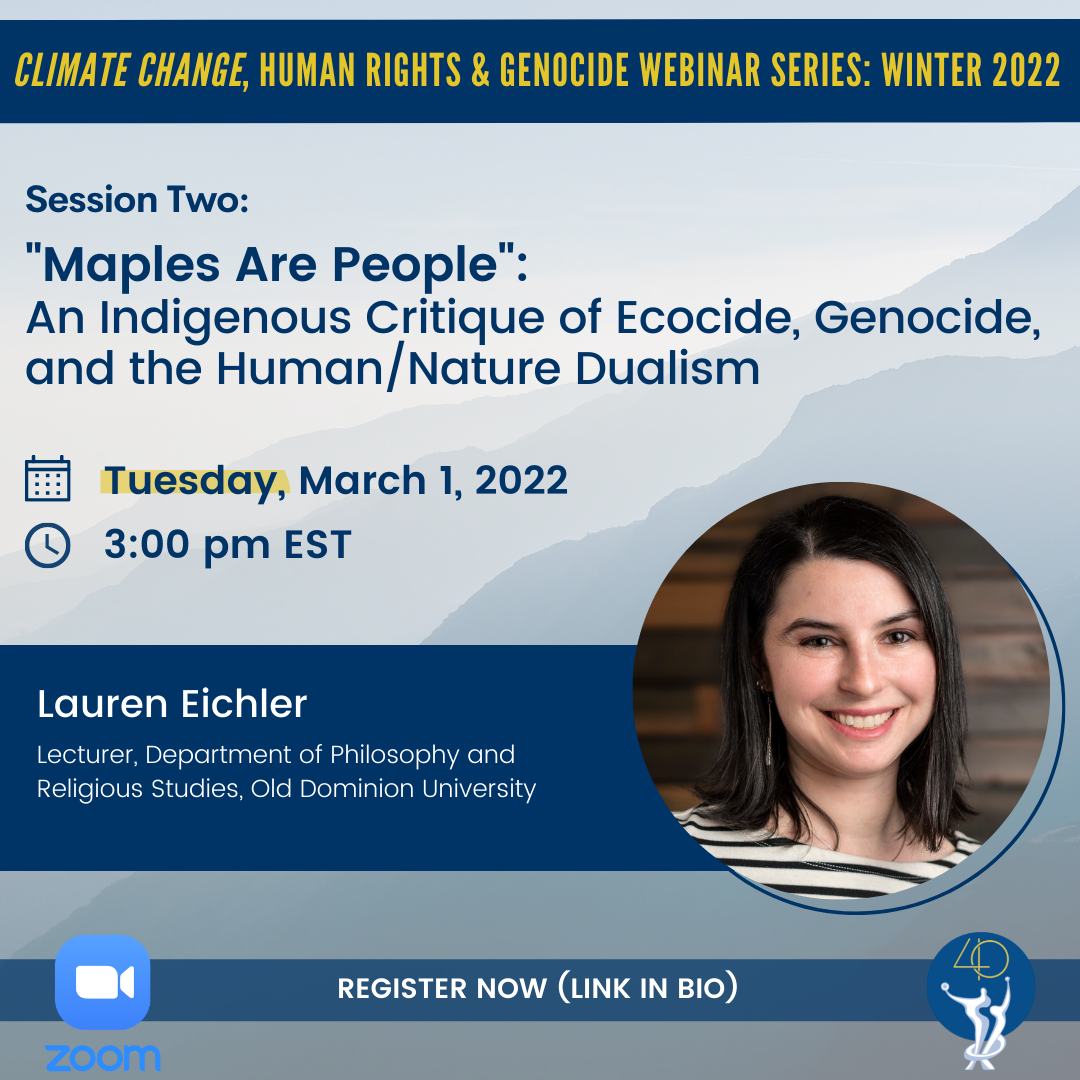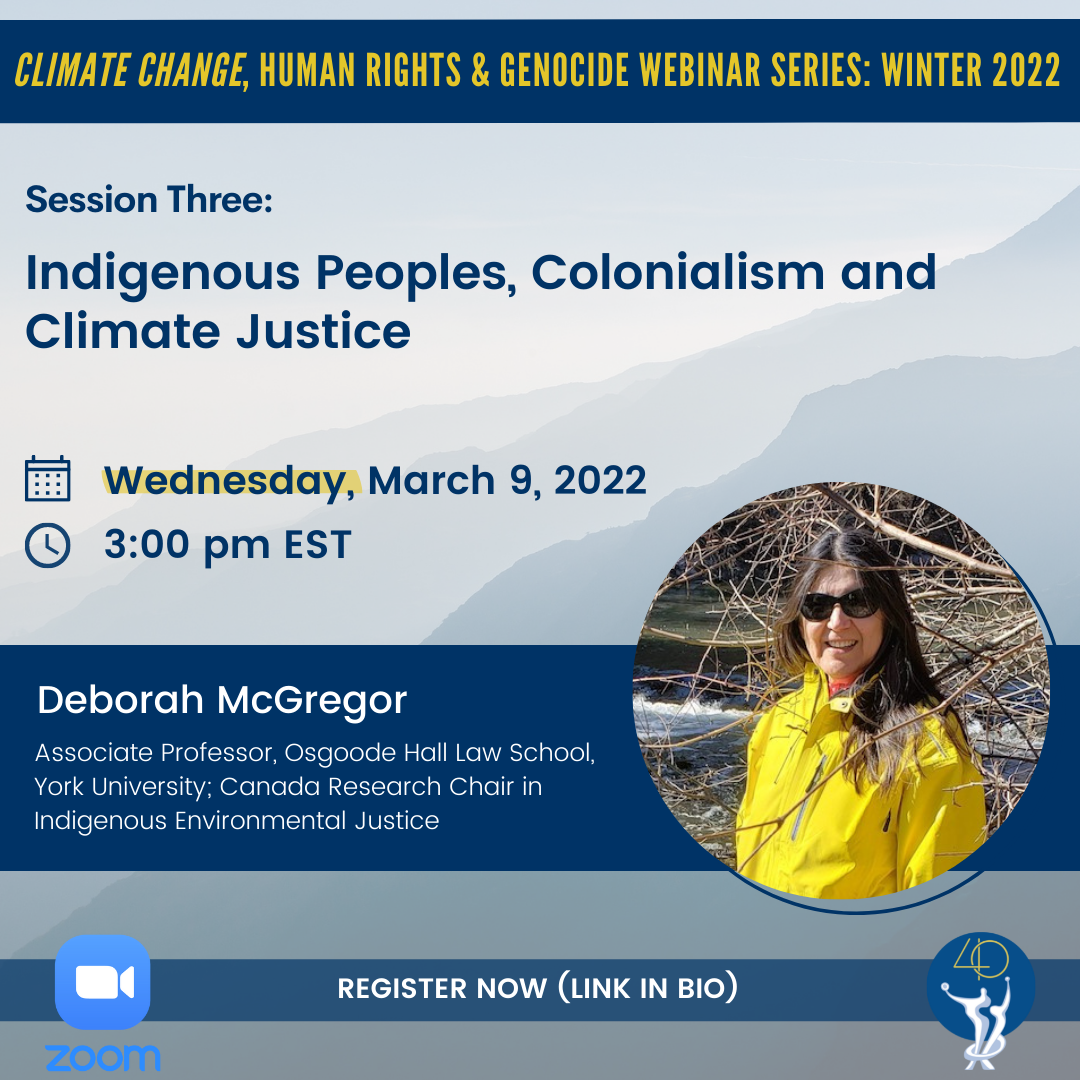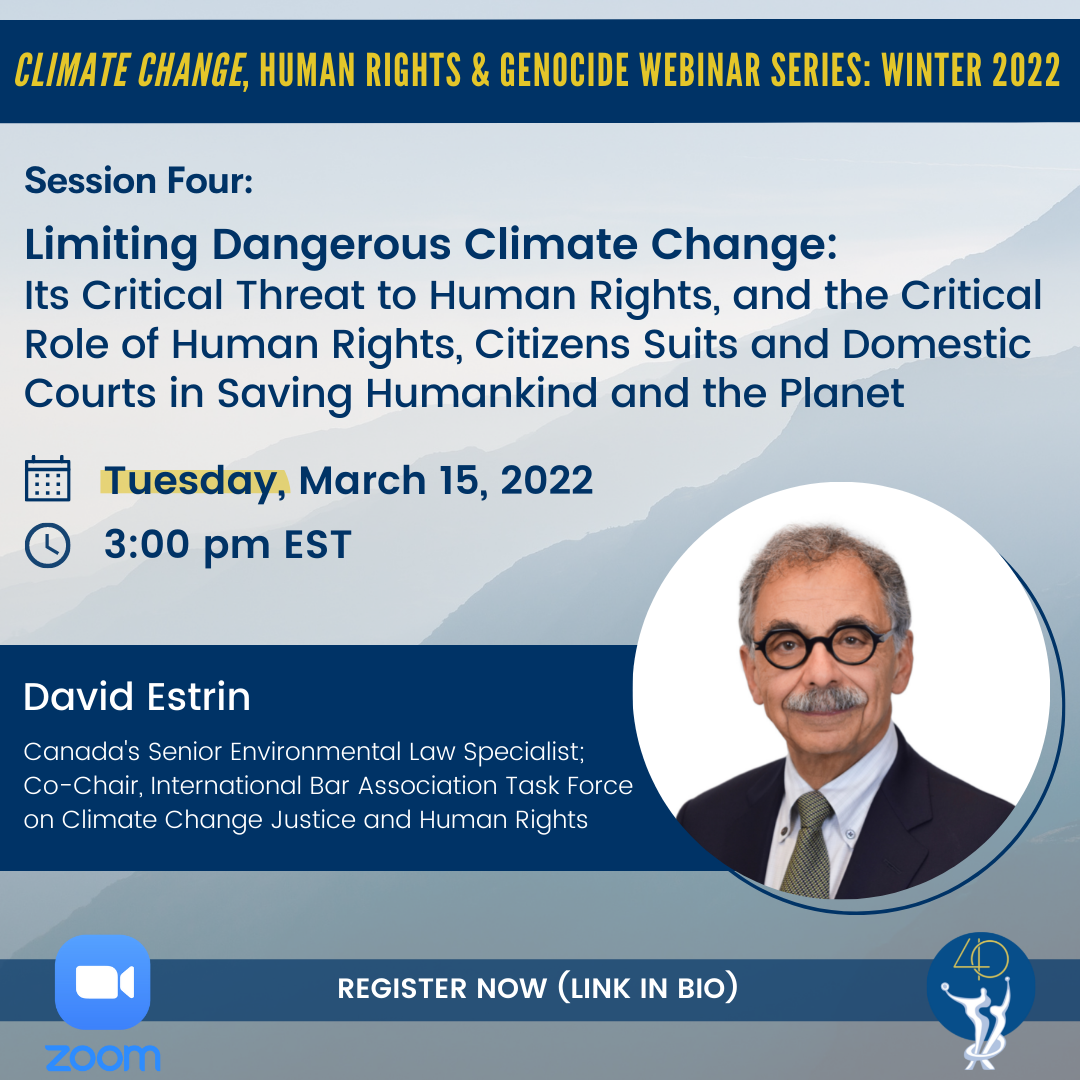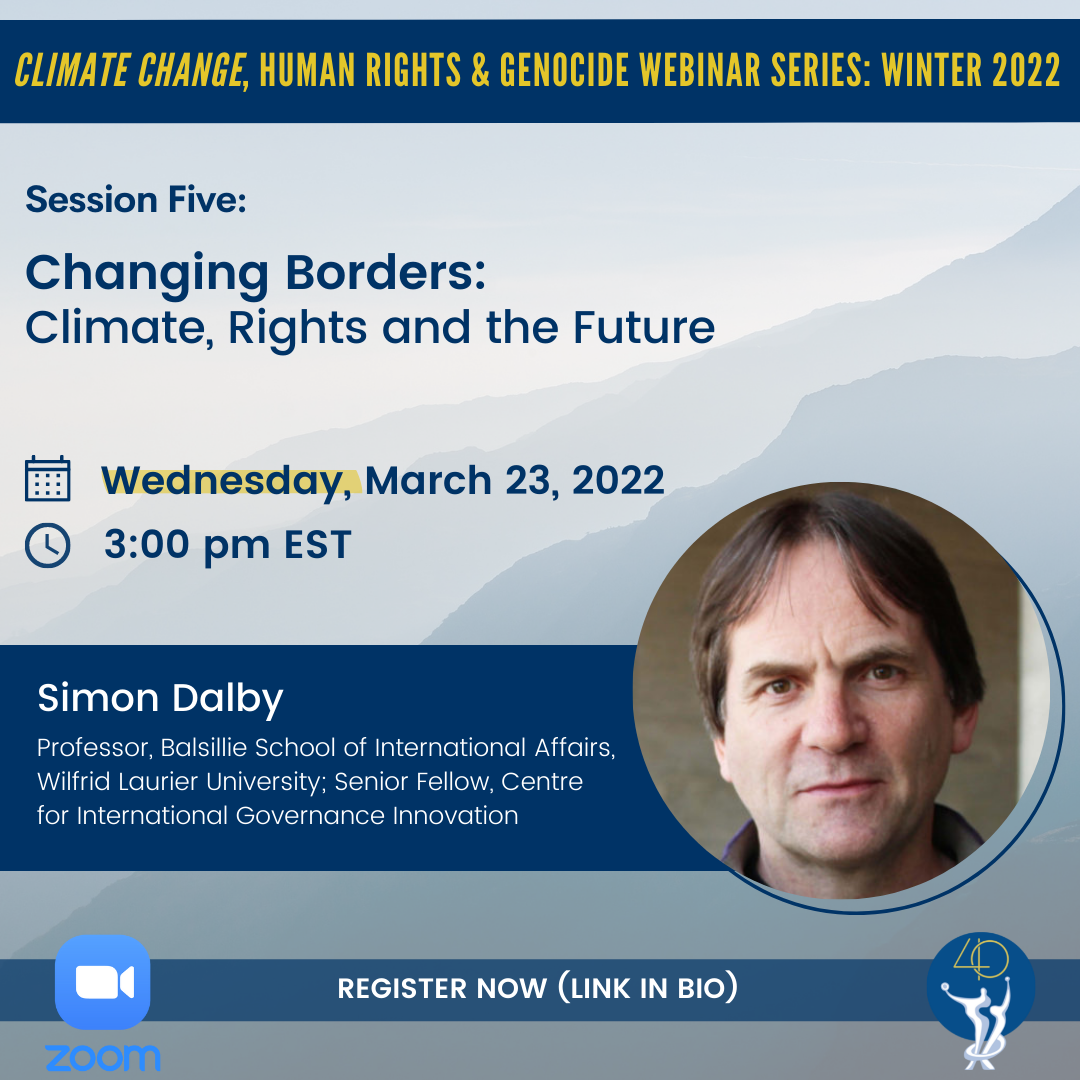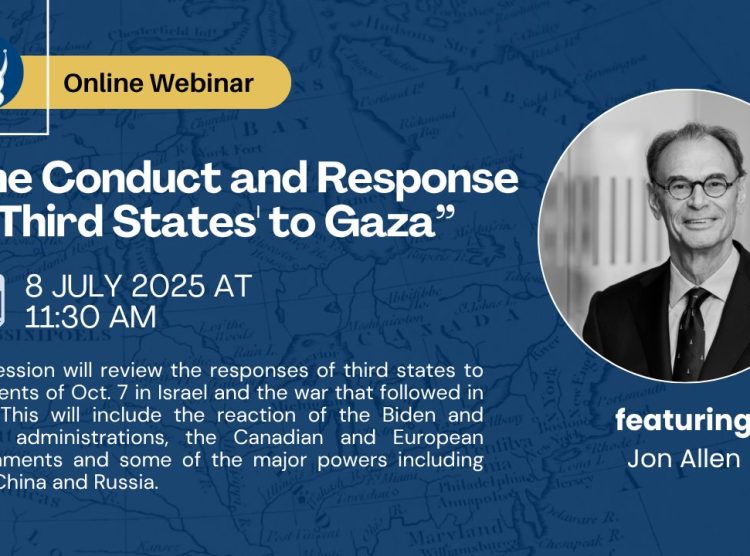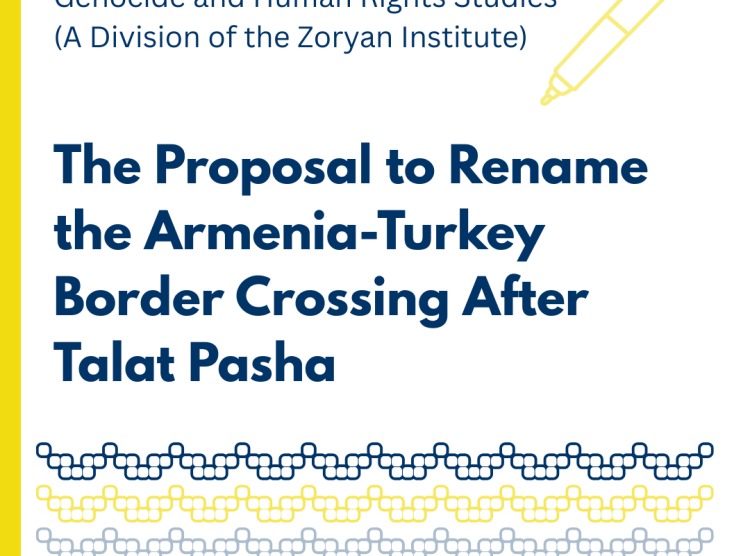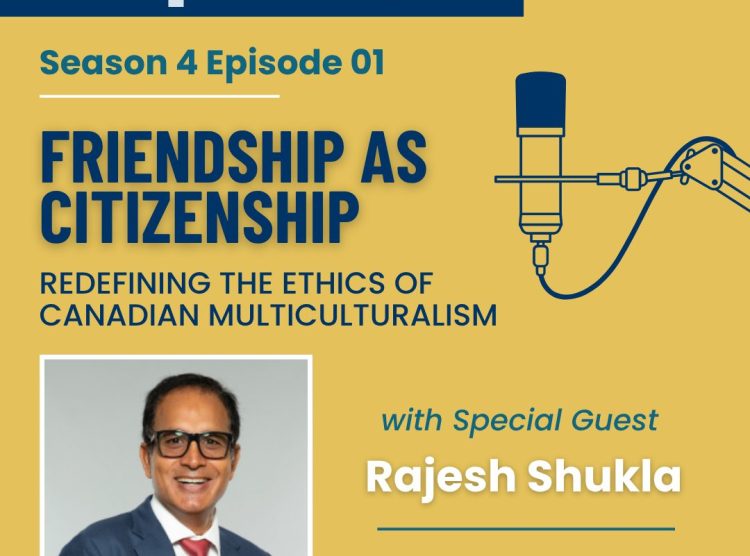It’s official! The Zoryan Institute is pleased to announce that its Genocide and Human Rights Webinar Series is coming back for its fourth instalment. This will be the first themed instalment, focusing on the relationships between climate change, human rights, and genocide.
The Institute recognizes that climate change, as a defining issue of our time, is reshaping the field of genocide and human rights studies, and is central to understanding these areas today. As such, the Institute acknowledges the necessity of bringing climate change to the forefront of its scholarship and education initiatives in order to raise awareness and prevent future mass violations of human rights and genocide.
This multidisciplinary webinar series, taking place between February 15th and March 23, 2022, will analyze current issues pertaining to the theme through sessions that combine theoretical concepts with case studies, allowing viewers to understand the challenges climate change presents to human rights and genocide studies and law, as well as the real-world impacts of climate change on the lived experiences and human rights of individuals from diverse geographical locations and backgrounds. It will conclude with discussions on how international and human rights law, and geopolitical powers may need to evolve to address these pressing issues. These webinars are free to attend and accessible to attendees around the globe.
Registration for the upcoming sessions is now open! Scroll down to learn more about the sessions and register today!
Presenter: Prof. Sumudu Atapattu, Teaching Professor and the Director of Research Centers and Senior Lecturer, University of Wisconsin Law School; Lead Counsel for Human Rights, Center for International Sustainable Development Law
Webinar Details: From sea level rise to resource scarcity, climate change can undermine many of the protected rights with far reaching implications for current and future generations. Sea level rise and extreme weather events are making many places uninhabitable, triggering mass movement of people. Many scholars believe that resource scarcity can trigger conflict which, in turn, will also give rise to displacement and refugees. This presentation will examine the link between climate change, conflict and displacement and what role human rights law can play in protecting the rights of people.
Register Now
Presenter: Prof. Lauren Eichler, Lecturer, Department of Philosophy and Religious Studies, Old Dominion University
Webinar Details: This presentation will explore how the dualistic and racist Western-colonial conceptions of “human” and “nature” have harmed Indigenous communities in three related ways: by delegitimizing Indigenous environmental ontologies, identity, and ethics, by dehumanizing Indigenous peoples, and by enabling the ecocide-genocide of Indigenous lands and peoples. The presentation will also consider the value and limitations for Indigenous peoples of making ecocide an international crime.
Register Now
Presenter: Prof. Deborah McGregor, Osgoode Hall Law School, York University; Canada Research Chair in Indigenous Environmental Justice
Webinar Details:Indigenous communities are facing very serious climate impacts and structural inequalities are rendering them disproportionately vulnerable to the current and future impacts of the changing climate. This presentation examines the relationships between Indigenous peoples, rights, colonialism that perpetuates injustice. I will also explain why Indigenous leadership, languages and knowledges are critical for advancing climate justice goals.
Register Now
Presenter: David Estrin, Canada’s Senior Environmental Law Specialist; Co-Chair, International Bar Association Task Force on Climate Change Justice and Human Rights
Webinar Details: This webinar will provide insights into the critically important role of law and human rights in helping to stop dangerous climate change and climate related human rights deprivations. Through a quick global tour of key citizen-initiated domestic court climate change cases and rulings, it will explain the legal foundations on which youth, citizens, Indigenous and other threatened communities, and NGOs can initiate litigation before domestic courts to legally require governments and the private sector to take needed actions to rapidly reduce GHG emission, decarbonize energy supplies and become carbon neutral.
Register Now
Presenter: Prof. Simon Dalby, Balsillie School of International Affairs, Wilfrid Laurier University; Senior Fellow at the Centre for International Governance Innovation
Webinar Details: The stable political arrangements of territorial states and fixed borders are being challenged by accelerating climate change. Other environmental disruptions are occurring too in what is now often called the age of the Anthropocene. Looking ahead at what this means for governance, rights and politics is a tricky business, but one that can no longer be neglected in humanity’s new circumstances.
Register Now


